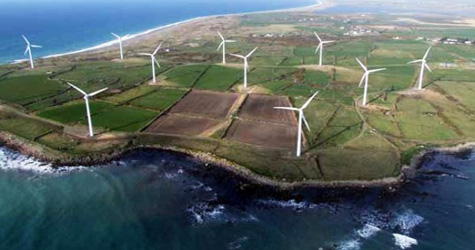The European Parliament's influential Industry Committee (ITRE) voted last night to call on the European Commission to "analyse and if appropriate to increase the legally binding renewable energy target" beyond 2020.
This is the latest signal that European Union policy makers are seriously considering extending renewable energy targets beyond 2020.
Recently Commissioner Connie Hedegaard told The Guardian newspaper that the EU “should be discussing a renewable energy target for 2030. We need to have ambitious targets. It would be one way to send a long-term price signal for renewable energy – that renewable energy is not just going to stop growing after 2020.”
Günther Oettinger, the European Commissioner for Energy, recently said: “We will have….a proposal from the Commission side for a long-term [renewable energy] target for 2030 and 2040 and 2050”.
“There is growing momentum for the European Commission to propose binding renewable energy targets for 2030″ said EWEA’s Senior Advisor on Climate and Environment Rémi Gruet.”For the last fifteen years the European Union has had a very successful renewable energy policy based on ambitious targets. If you have a successful policy it doesn’t make sense to abandon it after 2020. It’s important that the EU adopts a renewable energy target for 2030 and does so within the lifetime of this Commission and Parliament. Uncertainty about the policy framework after 2020 will do nothing to encourage investment.”
The ITRE committee’s move came in a vote on the Jordan Cizelj opinion to the Eickhout report on “Options to move beyond 20% GHG emission reductions”.
The report also called on the Commission to assess the effects of domestic emissions reduction policies on the EU economy, provide proper financing to the SET-Plan and orient research and funding towards energy and climate issues
Rémi Gruet commented: “Next to the call for renewable energy targets post-2020, we welcome the priority given to funding for research. But we regret that the report falls short of recommending a move to 30% greenhouse gas reductions. The report portrays the ETS as a burden on the economy, whereas it currently offers a subsidy for sectors like steel or cement that can make a profit by selling their emissions allowances.”
The Eickhout report is due to be voted on in the Environment Committee on 24 May and in plenary on 22-23 June.









